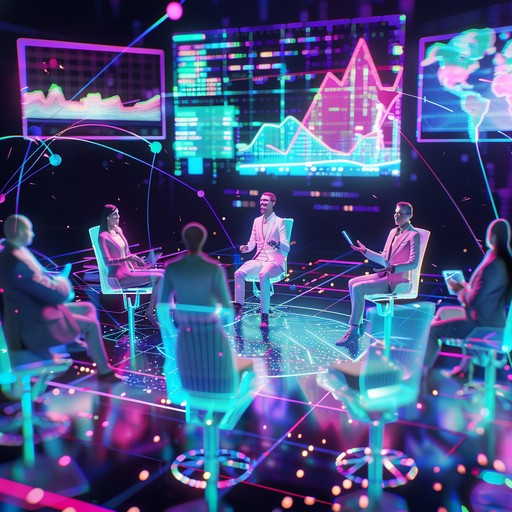

Artificial Intelligence (AI) is rapidly transforming our world, bringing both remarkable opportunities and serious challenges. As AI technology continues to evolve, it’s essential to understand how it impacts human life and corporate environments. This blog explores the benefits and risks of AI, its effects on the workplace, and what the future may hold.
The Bright Side of AI: Enhancing Human Life
AI has the potential to significantly improve our lives in various ways:
- Healthcare Advancements: AI is revolutionizing healthcare by enabling early disease detection, personalized treatment plans, and even robotic surgeries. It helps doctors make more accurate diagnoses and reduces the time needed for developing new drugs.
- Everyday Convenience: From voice assistants like Siri and Alexa to smart home devices, AI is making our daily lives more convenient. It learns our preferences and habits, helping us with tasks like managing our schedules, ordering groceries, and even recommending entertainment.
- Education and Learning: AI-powered educational tools are personalizing learning experiences, helping students grasp concepts at their own pace. Virtual tutors and AI-driven platforms are making education more accessible and effective.
- Environmental Protection: AI is being used to monitor climate change, optimize energy use, and even predict natural disasters. By analyzing vast amounts of data, AI can help us make more informed decisions to protect our planet.
The Dark Side of AI: Potential Risks
While AI offers many benefits, it also poses risks that cannot be ignored:
- Privacy Concerns: AI systems often require access to vast amounts of personal data. This raises concerns about how our data is collected, stored, and used, potentially leading to breaches of privacy.
- Job Displacement: AI’s ability to automate tasks is leading to job losses in various sectors. While some jobs are being created, many are being lost, particularly in industries like manufacturing, customer service, and data entry.
- Bias and Discrimination: AI systems can unintentionally perpetuate biases present in their training data. This can lead to discriminatory practices in areas like hiring, lending, and law enforcement.
- Security Threats: AI can be used for malicious purposes, such as creating deepfakes, cyberattacks, or even autonomous weapons. These threats pose significant challenges to global security.
AI in the Workplace: A Double-Edged Sword
In the corporate world, AI is both a boon and a bane:
- Increased Efficiency: AI can automate repetitive tasks, analyze large datasets, and improve decision-making processes, leading to increased efficiency and productivity in the workplace.
- Enhanced Customer Service: AI-powered chatbots and virtual assistants are improving customer service by providing instant responses and resolving queries quickly. This leads to higher customer satisfaction.
- Job Transformation: While AI is creating new job roles in fields like data science and AI development, it is also making many traditional jobs obsolete. Employees need to upskill and adapt to stay relevant in an AI-driven workplace.
- Ethical Dilemmas: As AI takes on more decision-making roles, ethical questions arise about accountability, transparency, and the impact on human workers. Companies need to navigate these challenges carefully.
Looking Ahead: The Future of AI
The future of AI is both exciting and uncertain:
- AI and Creativity: AI is already being used to create art, music, and literature. In the future, it may play a more significant role in creative fields, raising questions about the nature of creativity and the role of human artists.
- Human-AI Collaboration: Instead of replacing humans, AI is likely to complement human abilities, leading to more effective collaboration in fields like healthcare, education, and research.
- Regulation and Ethics: As AI becomes more integrated into our lives, there will be a growing need for regulations and ethical guidelines to ensure it is used responsibly and for the benefit of all.
- A Warning Sign for Humanity?: While AI offers tremendous potential, there are also concerns that it could lead to unintended consequences, such as the loss of human jobs, increased surveillance, and even the emergence of superintelligent AI that could pose a threat to humanity.
Conclusion: Embracing AI with Caution
AI is undoubtedly a powerful tool that can enhance our lives and transform the corporate world. However, it is essential to approach AI with caution, acknowledging its potential risks and ethical dilemmas. By understanding the dual nature of AI, we can harness its benefits while mitigating its downsides.
As we move forward into an AI-driven future, it is crucial to stay informed, adapt to new changes, and engage in discussions about the role of AI in our lives. Only by doing so can we ensure that AI serves humanity’s best interests, leading to a future where technology and human values coexist harmoniously.







